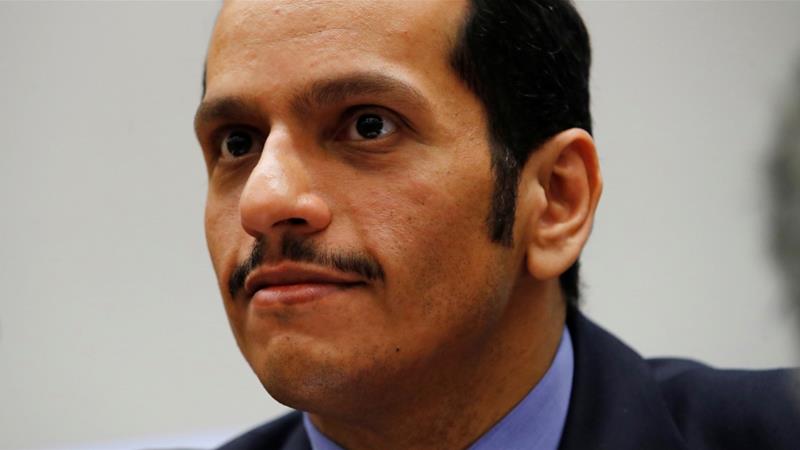UNHCR must act against blockading countries and compensate victims, says Sheikh Mohammed bin Abdulrahman Al Thani.
Qatar’s foreign minister urged the United Nations Human Rights Council (UNHCR) on Monday to take action and stop the blockade imposed on the Gulf nation by its neighbours nearly nine months ago.
“I call upon the Human Rights Council and all its mechanism bodies to take up their responsibilities and stop the unilateral measures taken by some states against the population of Qatar, and put an end to this racist course of action,” Sheikh Mohammed bin Abdulrahman Al Thani said.
“Victims must be compensated and perpetrators be held accountable,” he added.
Sheikh Mohammed made his remarks during the 37th regular session of the Human Rights Council in Geneva, Switzerland, where he spoke about the GCC crisis.
The dispute in the Gulf began in June 2017, when Saudi Arabia, the United Arab Emirates, Egypt and Bahrain cut diplomatic relations with Qatar and imposed a land, sea and air blockade, after accusing Doha of supporting “terrorism”.
Qatar has rejected the allegations as “baseless”.
Referring to the report, Sheikh Mohammed said the position of the countries imposing the blockade is not compatible with their presence in the Human Rights Council.
“There is serious contradiction between the position and conviction of these countries and their presence in the HRC. Their presence will eventually damage the council’s reputation,” the foreign minister said.
Other human rights crises
The Qatari foreign minister also called for an end to the siege of the Syrian enclave of Eastern Ghouta.
The Damascus suburb is home to some 400,000 people and is the last rebel-held region east of Syria’s capital.
Sheikh Mohammed called on the international community to intensify its efforts to stop the killing of Syrian civilians by regime forces.
More than 550 civilians have been killed since an aerial bombardment campaign began on February 18.
Last week, the UN Security Council voted unanimously in favour of a resolution calling for a 30-day ceasefire in Syria, including Eastern Ghouta.
However, air raids have continued since then. On Sunday, President Bashar al-Assad‘s forces launched a ground offensive against opposition fighters from multiple fronts, in an attempt to penetrate the besieged enclave.


